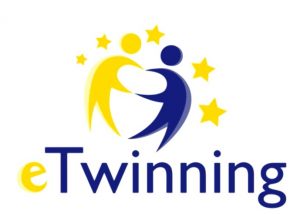Αρχική » 1 Computational thinking
Αρχείο κατηγορίας 1 Computational thinking
Barefoot – unplugged activities to develop computational thinking skills
Join Dr Chips and Ms Lieghio for the first Barefoot Live. Here they’ll be introducing various unplugged activities to develop computational thinking skills, including Dance Moves! The activities are suitable for all primary pupils and require nothing more than pen and paper to complete.
Computational Thinking Quick guide
Barefoot Quick guide to Computational Thinking The Pdf file quick–guide-to-computational-thinking
Concepts and Practices of Computational Thinking by HELLO RUBY
Source HelloRuby
Why is computational thinking important?
Computational thinking is the building blocks of our digital world, with the concepts forming the basis of much computer science. Computer scientists are interested in finding the most-efficient ways to solve problems, maximising accuracy and minimising resources (e.g. time / space). They look for solutions which can be applied elsewhere to save resources in the […]
Program a teacher / Sandwich Bot
Children have to program their teacher to make a jam sandwich using basic commands. It is not as easy a it seems. You can view the planning here. http://code-it.co.uk/csplanning.html (Sandwich Making Algorithm)
Critical thinking in six kid-friendly animations
Watch the next videos at https://gizmodo.com/critical-thinking-explained-in-six-kid-friendly-animati-5888322
School3
KA229 School Exchange Partnerships Project code 2019-1-EL01-KA229-062930 Summary It was observed by all our partners during education and training that rapidly growing robotic applications in education attracted the interest and attention of the students and helped them to participate classes more effectively and more enthusiastically. Preparing today’s students requires educational systems to provide a core body […]
Partners Istituto Istruzione Superiore “Augusto Righi”
Our institute operates within a social context characterized by a recent urbanization, resulting in a pluralism of behavior and, sometimes, stunted integration of the social fabric. In general, there is the frequency of students belonging to an average social group: the students of our institute, in fact, are mostly children of employees, traders, artisans and […]
Aims and outputs
Project aims: Develop in students basic knowledge (based on national curriculum) and a set of skills necessary for 21st century students Implement at school learners’ centered approaches based on self-regulated learning, selfreflections, peer assessment, collaborative work , etc Use of relevant technology Robotics, Coding, Computational Thinking in order to engage students in the learning process […]

